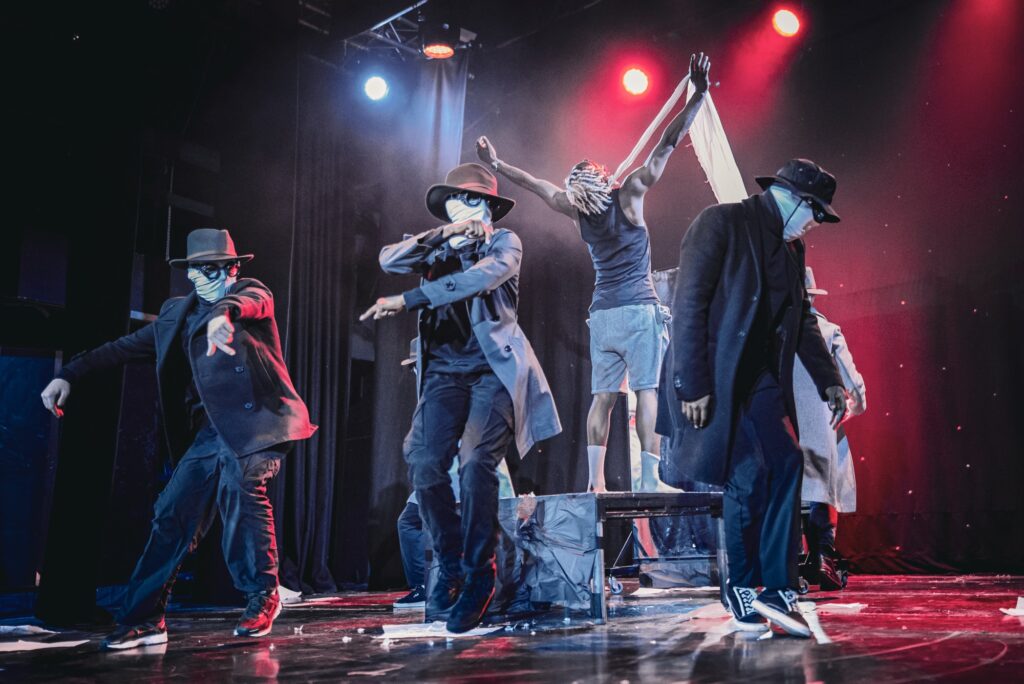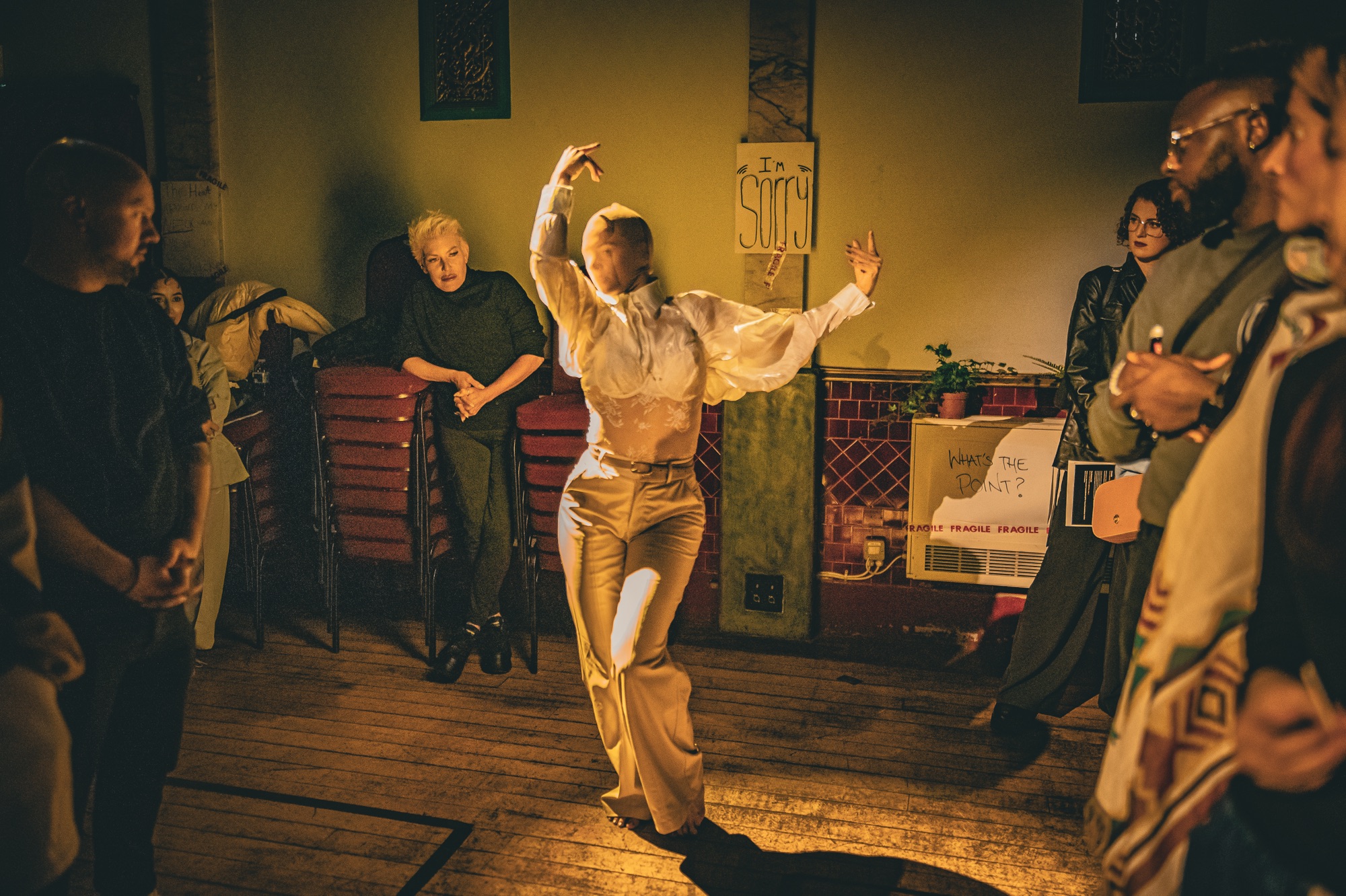Words by Katie Hagan.
In a recent interview, artist Jenny Odell articulated a sensation that many of us feel: that our contemporary concept of ‘clock-time’ – that is the push towards productivity and money in a capitalist society – is ruining art. As a people living in a fast-paced digital world we are always ‘on’; always watching the clock and wondering where time is going, all the while ironically not having a handle on time at all. The precarity of working in what’s increasingly becoming a survivalist arts world doesn’t help matters either, with most of us (particuarly those from marginalised groups) pushing so hard just to make ends-meet.
But, as Odell highlights, there are other kinds of time for people with different needs to embrace. This is particularly important for dance artists who need to be given (paid!) time for reflection, growth and rumination without the pressure to produce.
Hip-hop company BirdGang’s programme HATCHWORK is a two-week professional development residency offering just that. We sat down with Kendra Horsburgh, Managing Director and Kayla Lomas, Head of Education and the creator of HATCHWORK to chat about the programme.
DAJ: Can you tell us about BirdGang?
A: Our mission is to create authentic, meaningful and striking hip-hop theatre. At BirdGang we’re very interested in innovation, pushing boundaries, going against the norm when it comes to hip hop theatre and being authentic.
As an organisation we have three strands. We dip into the commercial side of things, where we supply talent to the industry and work with big brands. Then we have a production arm where we produce in-house. And then we have the whole education and training programmes, from youth company to professional company. We also supply teachers to schools.
DAJ: How does HATCHWORK fit in with BirdGang’s vision and values?
Kayla: We created HATCHWORK after feeling and sensing the need within the company for people to be able to express and create.
I remember thinking that there were people in the BirdGang company that I would love to push further, but I just didn’t have the ability to do so within a three hour session for instance. When you’re in a group session, you’re mostly working on one specific thing together, whether that be a work or another project.
We then thought about creating an artist development programme that could really be a great opportunity for artists. We experimented and explored what happened when we gave a certain amount of people an opportunity to create with the guidance of mentorship.
The first time we did, it was very much a trial and we funded it ourselves. And then now we are doing it for the fourth time and have opened it out to everyone, not just the BirdGang company. Each time we’ve done it, we’ve looked at how we can make it better. Our overall aims are to one, push creatives and give them the space to find and develop their own voices. And then two, how can we give them the tools in which to not just create a piece, but be successful in the long-term?
DAJ: Because being an artist is not only about making work, it’s also about doing the stuff that you need to do to make work and survive!
Kendra: It’s worth mentioning that, like everything in hip-hop, we – mainly Kayla! – made something out of nothing.

DAJ: What makes HATCHWORK unique do you think?
Kendra: I might be wrong but I’m not aware of programmes that do what we do and offer such a big scope. I know of ones where you can specifically go to for movement, or lighting, but not a programme that covers a range of topics.
During the two-weeks of HATCHWORK, artists learn a whole range of skills. There’s an industry day where you’re presenting your work to actual industry contacts. We have professionals specialising in lighting, set and costume design, sound production, business management who come in and and each deliver two workshops where the second workshop develops the learnings from the first. So the first is theoretical and the second puts the theory into practice.
For many participants, they are given the skills that you need for our industry that aren’t taught at university.
DAJ: I guess it’s also about giving people the confidence as well so they believe they can do it?
Kendra: 100%. I think the real uniqueness of HATCHWORK is that me and Kayla have been through a lot of these programmes ourselves and realised what was really helpful and what we needed more of afterwards.
Another thing that was important to us was HATCHWORK’s legacy. Anyone who goes through HATCHWORK has constant access to these specialists, so even beyond the programme, they can ask questions. It was really important for us to design a programme that would help artists in the long-run, and to create a network where we could supply them with more opportunities.
We get all our industry contacts in, so that participants can not only get feedback from them, but can potentially collaborate with them and create opportunities. Sometimes it’s as quick as: “I like your work – can you perform it at this festival that we’re presenting in the Autumn?” And some of the development is slower and deeper: the producer we work with won a travel bursary from FABRIC and in November she attended the CINARS event in Montreal, promoting work created in HATCHWORKS ’24 to international programmers. It was a great way of creating connections between emerging artists in the UK and theatres programmers around the world.
DAJ: If you think about the culture of the dance industry, it’s so important to create opportunities.
Kendra: I don’t want to keep banging on about hip-hop, but it is community; it’s all about sharing ideas. The dance industry right now is so segregated and so infiltrated by the ‘I’, by ‘me’, that this is extremely important. People who take part in HATCHWORK feel seen and this is really powerful.
Kayla: In a fast-paced world of social media, I also think it’s important for artists to think about the long-term. I think we are sometimes so fixed on what is going to give you the view, the like, that the idea of becoming an artist is fading away. I think, from our side, it’s about trying to keep that idea and sentiment in a world that is changing. As educators it’s important for us to encourage artists to continue to think about the bigger picture or think in a different way. To broaden your horizons to consider not just what you want, but what you need.
DAJ: How do you see HATCHWORK developing in the future?
Kayla: My wish is that every participant who comes through HATCHWORK is able to come out of the two-weeks with a much wider, broader scope of the industry, and know where their place is within it. I also want them to have the confidence in themselves as individuals and their work, and be able to develop a piece of work without the pressure to create a final product.
I would love to be able to extend the programme to a point where we can offer more time with these people so we can really even dig deeper.
Find out more about BirdGang here. Watch the past HATCHWORK works here.
HATCHWORK 2025 team:
Movement & Creation: Kenrick Sandy
Industry, Design & Licencing: Max Cyrus
Music Theory & Soundtrack: Jack Manley
Costume & Set: Rebecca Bevan
Lighting Design and Plan/Delivery: Kory Trantum
Coaching: Tom Harvey
Mentor & Film: Simeon Qsyea
Production Mentorship: Lydia Wharf
Mentor & Character work: Ukweli Roach
Mentor & Immersive Tech & Business Developpment: Kendra Horsburgh
